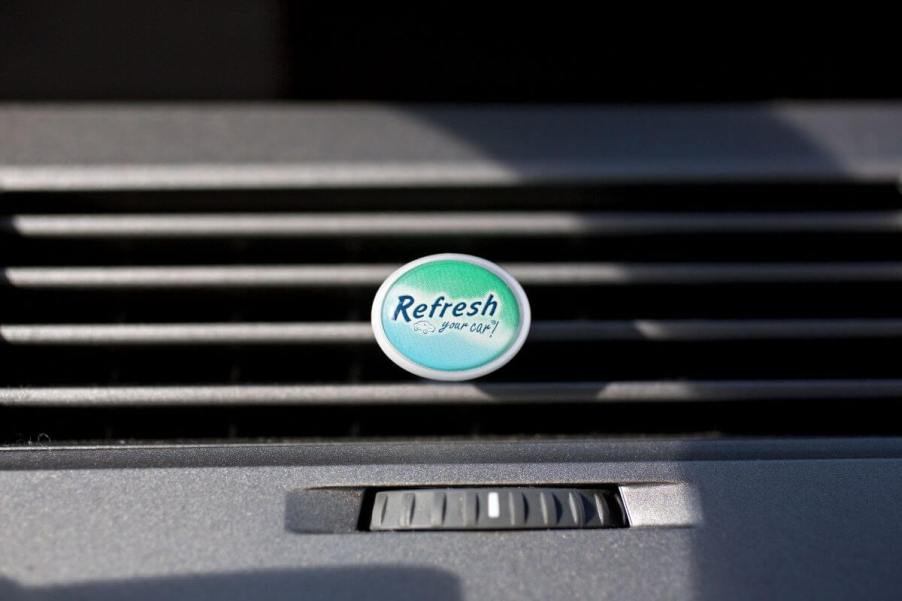
What Causes the New Car Smell?
Is there anything better than slipping behind the wheel of your brand-new car? For some, it’s that new car smell that makes the experience of buying a vehicle even more satisfying. Owning a new car employs four of the five senses: sight, sound, touch, and smell.
The new car smell is so popular that there are air fresheners that promise to give your vehicle that particular scent, but nothing quite compares to the real thing. So, why is it so attractive, and what is the cause of it?
What is the appeal of the new car smell?
The new car smell is often described as a combination of different scents, including the scent of fresh upholstery, carpeting, plastics, and paint. These scents are associated with the newness and cleanliness of the car and may evoke feelings of excitement, pride, or satisfaction for the car owner.
Another reason the new car smell is popular is the association with luxury and status. Vehicles are often seen as a symbol of wealth and success, and the scent gives an impression of exclusivity and opulence. For some people, owning a new vehicle is a sign of prestige, and the smell reinforces this image.
The appeal of the new car smell can also be attributed to the psychological phenomenon of odor-evoked nostalgia, which is the ability of scents to trigger memories and emotions. For many people, the odor of a new vehicle may remind them of positive experiences such as buying their first car, going on a road trip, or achieving a personal goal. So, what produces that particular scent?
The science behind the alluring scent

Off-gassing, a term that doesn’t sound particularly attractive, is a chemical reaction that results in the typical new-car odor. The numerous polymers and adhesives utilized in a modern car’s interior are the primary culprits. The mixed ingredients typically give off a brief “gasoline-like” odor. Even if it doesn’t sound appetizing, that nevertheless emits that new car aroma.
Car and Driver says the chemical reaction releases volatile organic compounds (VOCs), which produce that familiar smell. These mostly come from petroleum-based solvents in plastic and vinyl, which are considered air pollutants. So, is the new car smell safe?
Is the new car smell bad for you?
It should be noted that not everyone likes the new car smell. For example, no matter the type of vehicle or its price, car shoppers in China don’t like any smell in a vehicle, even if the scent is generally pleasing, like leather seats. The reason? It relates to air quality. Chinese consumers are super conscious of air quality, and any smell could be considered air pollution.
USA Today reports that researchers from Harvard University and the Beijing Institute of Technology in China performed a study where they parked new cars outside and let them sit in varying conditions for 12 days. They measured the air quality, and it turns out that new cars emit two toxic chemicals, acetaldehyde and formaldehyde, at rates exceeding China’s environmental standards.
Additionally, the chemicals that create the new car smell can also be harmful if inhaled in large quantities. A study published in Environment International said the combination of benzene and formaldehyde is known to cause cancer beyond a certain level of exposure, which is used in the formation of some plastics used in new cars. The two carcinogens are not dangerous if exposure remains low. However, in close quarters, such as the interiors of vehicles, are not well studied, so the risks are not well known.
That new car smell might be bad for you, but that isn’t going to stop most consumers. Overall, the appeal of the new car smell can be attributed to a combination of sensory, emotional, and cultural factors.



